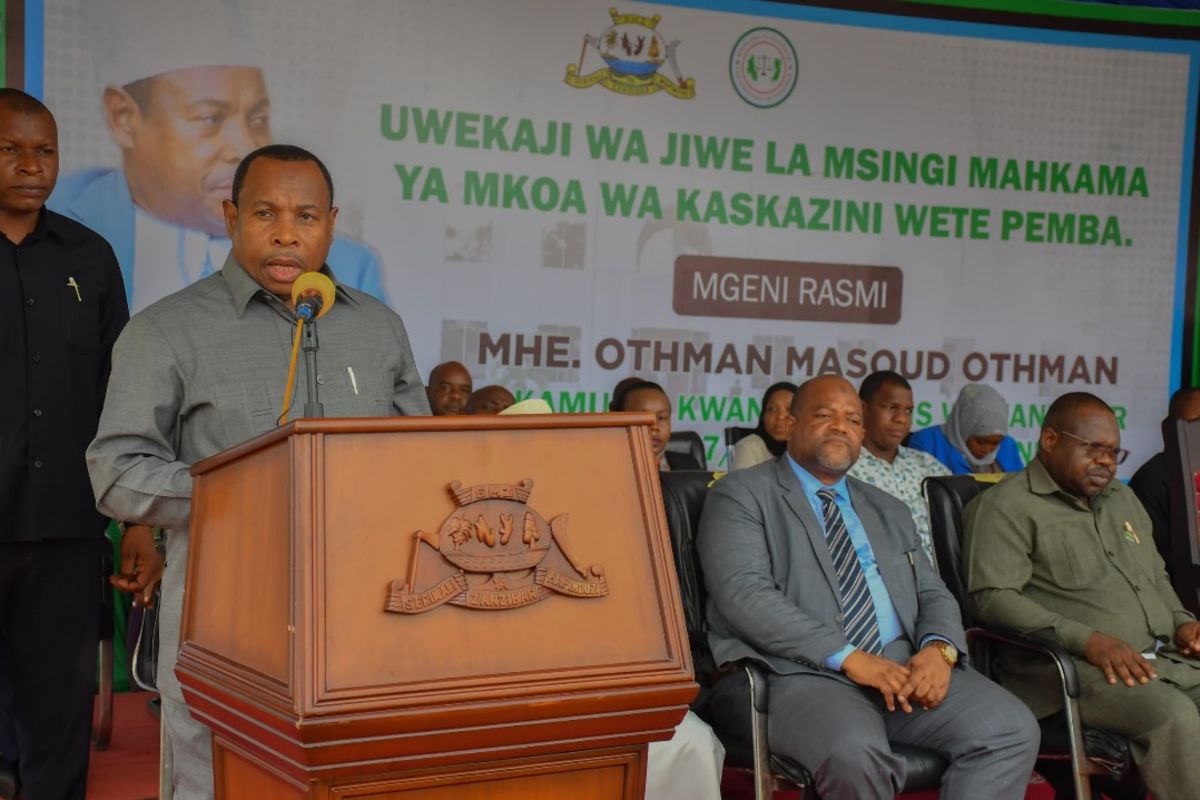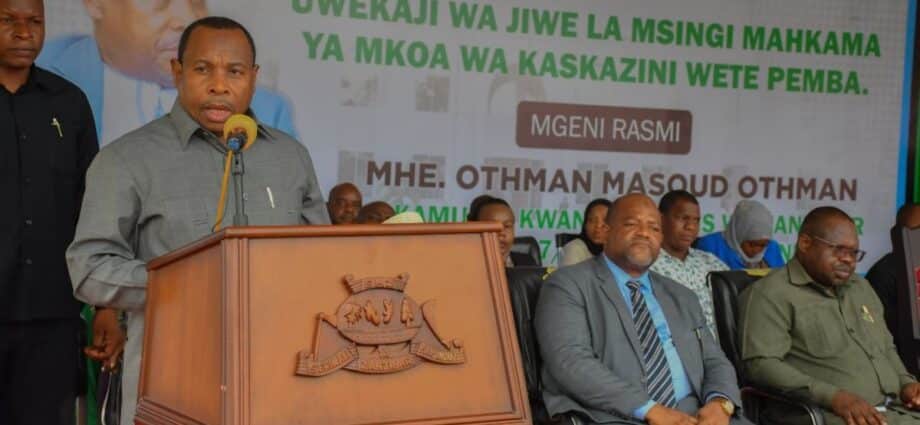
Pemba. Zanzibar’s first Vice President Othman Masoud Othman, has emphasised that the dignity and respect of the judiciary are not solely derived from the beauty of its buildings, but from a strong foundation of justice and integrity.
Mr Othman made these remarks on Friday, December 27, 2024, during the groundbreaking ceremony for the construction of the North Pemba Regional Court building in Kinyasini, Wete District.
He explained that citizens will respect the judiciary, not because of the aesthetics of its buildings, but when the institution serves as a refuge for justice and the resolution of their problems.
He further stated that a court that fails to uphold justice and integrity, regardless of its physical appearance, is like a “blunt sword without wisdom”—a “sword of oppression.”
“I urge all those involved in this vital institution to uphold integrity, kindness, and justice, especially for those who may have no voice and no one to defend them,” added Mr Othman, underlining the importance of the new court buildings.
He also noted that the Zanzibar Government has developed a strategy to build modern court offices in order to improve working conditions and enhance service delivery to the public.
“These buildings will lose their meaning if citizens avoid them instead of seeking them out,” he remarked.
The construction of the new courts is part of an effort to address long-standing infrastructure challenges, such as overcrowding, dilapidation, and inadequate facilities, particularly for people with special needs.
“These issues led the government to take proactive steps, including initiating the construction of regional and district court buildings, both in Unguja and Pemba. The North Pemba Regional Court is part of a broader project that includes seven new court buildings across both islands, planned for the 2023/2024 financial year,” Othman explained.
He also mentioned the construction of the Micheweni District Court in Konde and the Mkoani District Court.
Mr Othman stressed that courts should not only be places of justice but also “schools of law,” condemning the unlawful practices of arresting, abducting, and returning innocent citizens as corpses, while authorities remain silent.
He further assured that the new court building would address the office needs of court staff and stakeholders, including government lawyers, private lawyers, the police, the training college, social welfare services, legal aid providers, and the general public.
The Chief Justice of Zanzibar, Khamis Ramadhan Abdalla, also commended the Eighth Phase Government for prioritizing the judiciary sector, including strengthening its infrastructure.
“He highlighted ongoing initiatives, such as the construction of seven new court buildings in Pemba, and the successful proposal to the World Bank for a $100 million loan aimed at further enhancing the judiciary’s performance over the next five years,” he said.
Acting Minister for the Office of the President for the Constitution, Law, Public Service, and Good Governance, Shamata Shaame Khamis, who also serves as the Minister for Agriculture, Irrigation, Natural Resources, and Livestock, assured that the government will continue to monitor the budget and directives to address various challenges in the sector.
“I urge citizens to unite and work together to ensure the success of our development, including the proper implementation of laws and the effective management of justice,” he said.
The ceremony was part of the 61st anniversary celebrations of the Zanzibar Revolution, themed “Peace, Unity, and Solidarity for Our Development.”
The event featured prayers, poetry, and performances from the Chipukizi Band.
The ceremony was attended by various leaders from the government, political parties, the House of Representatives, the Chief Judge of the Zanzibar High Court, Members of the National Assembly, religious and community leaders, the private sector, civil society organizations, and security chiefs.
It was led by the Chief Qadi of Zanzibar, Sheikh Hassan Othman Ngwali, and the North Pemba Regional Commissioner, Salama Mbarouk Khatib.














